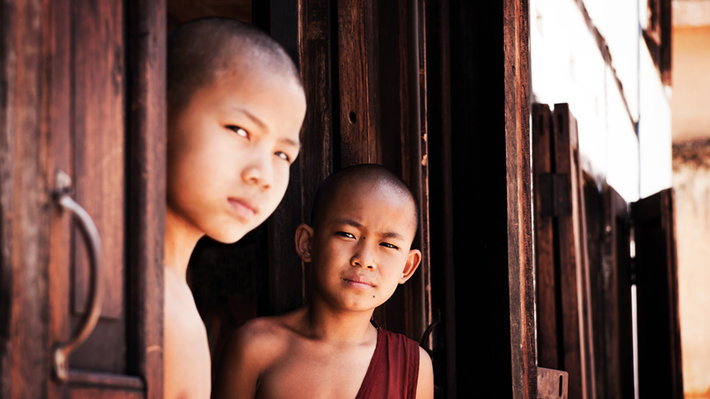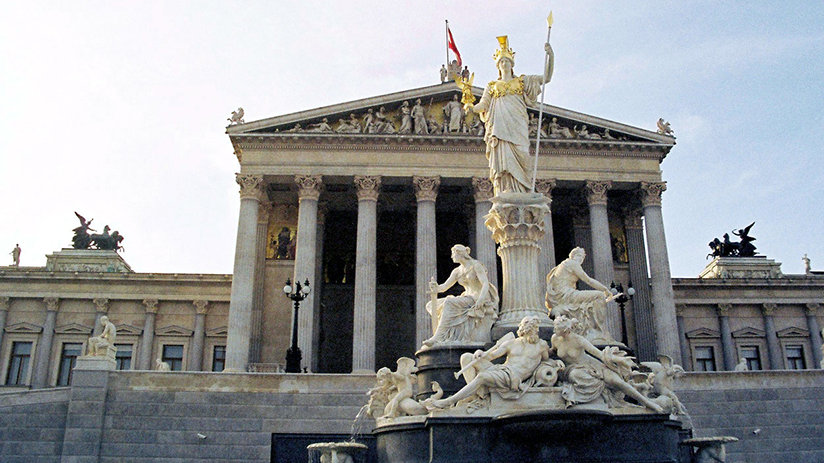
-
HOME
-
WHAT IS STANDOur Mission Our Values Our Help Contact
-
WHAT WE FIGHT FORReligious Freedom Religious Literacy Equality & Human Rights Inclusion & Respect Free Speech Responsible Journalism Corporate Accountability
-
RESOURCESExpert Studies Landmark Decisions White Papers FAQs David Miscavige Religious Freedom Resource Center Freedom of Religion & Human Rights Topic Index Priest-Penitent Privilege Islamophobia
-
HATE MONITORBiased Media Propagandists Hatemongers False Experts Hate Monitor Blog
-
NEWSROOMNews Media Watch Videos Blog
-
TAKE ACTIONCombat Hate & Discrimination Champion Freedom of Religion Demand Accountability
Could We Wake Up One Day Without Religious Freedom?
The Pew Research Center just updated its 10-point scale Government Restrictions Index. And it’s depressing: the score has risen steadily since 2011.
It’s a slow but relentless rise in restrictions on religion. It reflects a “rise… in the number of governments using force—such as detentions and physical abuse—to coerce religious groups,” as the study put it.

Not surprisingly, authoritarian countries are almost universally tough on the free exercise of one’s religious beliefs. Free thinking can be frustrating to some.
Picture it: a portion of the population over which you rule won’t acknowledge you as their Supreme Leader—they already have a spiritual one. It can’t be allowed!
That’s why “Among countries with low government restrictions on religion… just 7% are authoritarian.”
You have the right to believe in anything or nothing. But if you want to be able to exercise that right, it has to be fought for.
But here’s what’s interesting: some of these same countries that are the harshest on religion have populations that are incongruously tolerant. And some countries that enjoy religious freedom have more social hostility!
“The five countries categorized as full democracies with high levels of social hostilities are all in Europe—Denmark, Germany, the Netherlands, Switzerland and the United Kingdom—and all had reports of anti-Muslim and anti-Semitic incidents.”
In other words, tolerance in law doesn’t always translate to tolerance in day-to-day life.
“It couldn’t happen here”
It’s easy to look with disapproval at countries where government is tough on religion, because after all, we in the United States have the most tolerant laws in the world, right?
It sounds good, but it’s the wrong attitude. Like anything you put on automatic, your rights can disappear in a day.
Take the Christians of the early Roman Empire. After they survived all of those lions in the arena, they enjoyed long periods of tolerance.
Then in 297, Emperor Diocletian came to power. It was a time of crisis, and he decided that Christians could not be trusted. As the Constitutional Rights Foundation tells it, “he demanded that all Christian soldiers resign from the Roman army. He forbade gatherings for Christian worship and ordered the destruction of churches and sacred writings. Christian members of the government were tortured and executed.”
In the end, Christianity flourished anyway: it attracted people from all walks of life and eventually became Rome’s state religion.
That story makes two points:
1. Never relax your guard: religious intolerance could sweep up good citizens—citizens like you—in your own country.
2. In the end, repression of strongly-held belief never works; the more persecution, the more stubborn the resistance, and the more sure the eventual victory of belief.
In short, you have the right to believe in anything or nothing. But if you want to be able to exercise that right, it has to be fought for just as the early Christians did. They put their lives on the line to keep from being stamped out, and they won.
You don’t want to “leave it on automatic” and one day find out the fight for your faith is a dire emergency.
Support freedom of religion or belief. Let’s make a world where people are free to think and speak what is true for them—a world we can all love.









